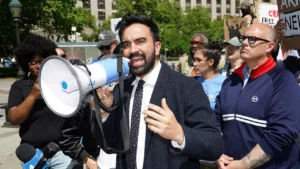
The Fallout of Meta’s Content Moderation Overhaul: A Shift in Online Discourse
Meta’s recent announcement to overhaul its content moderation policies has sent shockwaves through the digital landscape. In a bold move, the company has abandoned its third-party fact-checking program and instead opted for a crowd-sourced approach to managing online discourse.
Under this new system, Meta will rely on community-driven “Community Notes” to moderate user-generated content. This change has sparked concerns about the potential rise in misinformation and hate speech on the platform.
As part of these changes, Meta is also relaxing its guidelines on certain topics such as immigration and gender identity. The updated Hateful Conduct policy now allows for more leeway in discussing these issues, with some critics warning that this could lead to a proliferation of harmful rhetoric.
The decision has been met with skepticism by many experts in the field, who argue that this approach is short-sighted and will ultimately exacerbate online toxicity. They warn that the lack of fact-checking will create an environment where misinformation can spread unchecked, threatening the integrity of digital discourse.
In his announcement, CEO Mark Zuckerberg emphasized the importance of “free expression” and claimed that the shift in policy would promote a more inclusive online environment. However, critics have pointed out that this change will disproportionately affect marginalized communities who are already vulnerable to online harassment and hate speech.
Furthermore, this overhaul has raised concerns about the potential for biased moderation. Meta’s decision to relocate its trust and safety teams from California to Texas, citing concerns about bias, has sparked debate over the implications of having a centralized review process in the heart of conservative America.
The move has also been met with criticism from within Meta itself. The company’s Oversight Board, a semi-independent body tasked with interpreting Meta’s rules and suggesting changes, released a statement expressing its concerns and requesting engagement with the company on the issue.
In response to Trump’s claims that his threats likely influenced Meta’s decision, Zuckerberg downplayed the impact, stating that the change was simply an effort to “prioritize speech” and promote free expression. However, this shift has far-reaching implications for online discourse, threatening the very fabric of digital communication.
As the dust settles on this seismic announcement, one thing is clear: the consequences of Meta’s overhaul will be felt across the internet. Whether or not these changes will ultimately lead to a more inclusive and safe online environment remains to be seen, but it is imperative that regulators and content creators alike take note of the potential risks and implications of this shift.
It is also worth noting that Trump himself has weighed in on the issue, boasting about how his threats likely pressured Meta into making these changes. The irony is not lost on many observers, who point out that Trump’s own history of spreading misinformation makes him a questionable authority on the subject.
Ultimately, it remains to be seen whether this shift will have a lasting impact on online discourse or if it will ultimately prove to be a step in the wrong direction for digital communication.
Source: www.theverge.com


